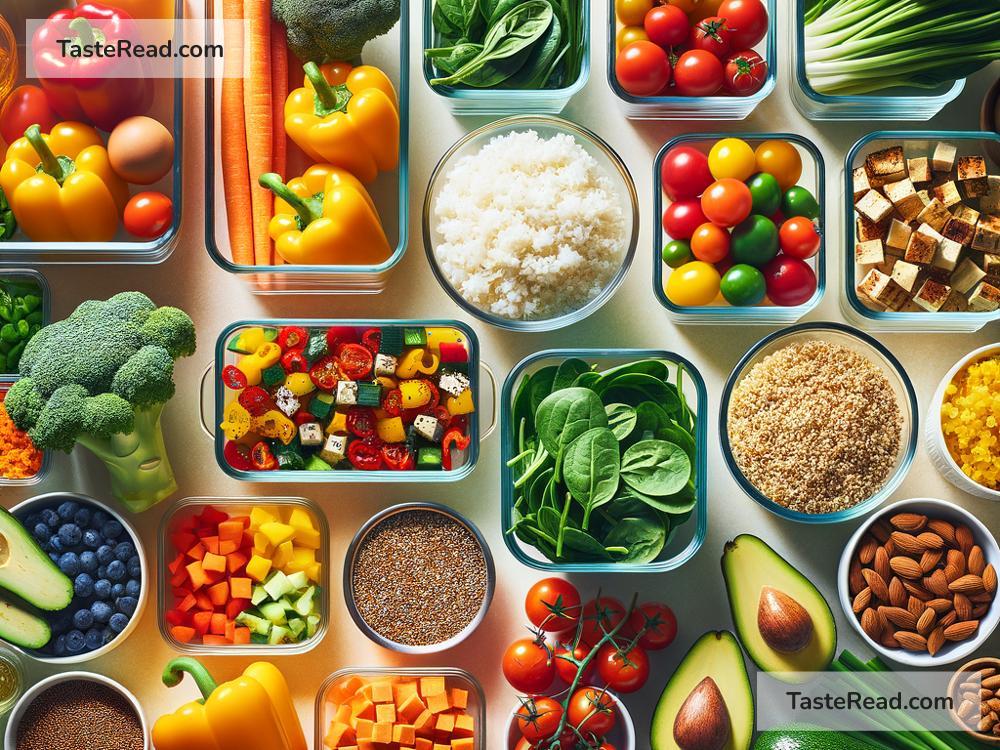How to Plan Meals for Optimal Hormone Regulation
When most people think about their health, they focus on weight, fitness, or energy levels. But what about hormones? Hormones are like tiny messengers in your body, involved in processes like mood, sleep, growth, metabolism, and even hunger. If your hormones are out of balance, you might feel tired, moody, or out of sync. The good news is that the food you eat can help! By planning meals that support hormone regulation, you can feel better and give your body what it needs to thrive.
Let’s keep it simple and learn step by step how to plan meals for optimal hormone health.
Step 1: Understand the Role of Food in Hormone Balance
Hormones rely on nutrients from food to function well. For example:
- Protein helps build and repair hormones.
- Healthy fats are essential for producing hormones like estrogen and testosterone.
- Carbohydrates provide energy and support healthy blood sugar levels, which are closely tied to hormone health.
- Vitamins and minerals like magnesium, zinc, and vitamin D play key roles in balancing hormones.
When you eat the right combination of nutrients, your body can produce and regulate hormones more effectively.
Step 2: Focus on Balanced Meals
Balanced meals are key to keeping your hormones in check. A balanced meal has three main components: protein, healthy fats, and complex carbohydrates. Let’s break it down:
Protein
Protein is crucial for hormone regulation. It helps build muscle, repairs your body, and keeps you satisfied after meals. Good options include:
– Chicken, turkey, fish, eggs
– Beans, lentils, tofu, and tempeh
– Greek yogurt or cottage cheese
Healthy Fats
Fats are not the enemy—they’re essential for creating hormones! Choose healthy fats like:
– Avocados
– Nuts and seeds (e.g., almonds, walnuts, chia seeds)
– Olive oil or coconut oil
– Fatty fish (like salmon or sardines)
Complex Carbohydrates
Don’t fear carbs—they’re important for energy and hormone balance. Complex carbs release energy slowly, keeping hormones steady. Great choices include:
– Sweet potatoes
– Quinoa, brown rice, or oats
– Whole-grain bread or pasta
– Fruits and vegetables
Step 3: Manage Blood Sugar Levels
Your blood sugar affects hormones like insulin and cortisol. These hormones play a big role in energy, metabolism, and stress. If your blood sugar spikes and crashes due to sugary or processed foods, it can throw your hormones out of balance. To stabilize blood sugar:
- Combine carbs with protein and fats at every meal. For example, pair whole-grain crackers with hummus or an apple with almond butter.
- Avoid processed foods like chips, soda, and sweets.
- Eat smaller, regular meals every 3-4 hours instead of overeating all at once.
When your blood sugar is stable, your hormones stay calmer—and you feel more energized.
Step 4: Prioritize Gut Health
Your gut health is closely tied to hormone balance. A healthy gut ensures that your body absorbs the nutrients it needs and gets rid of toxins that could disrupt hormones. Foods that promote gut health include:
- Probiotic-rich foods: Yogurt, kefir, sauerkraut, kimchi
- Fiber: Vegetables, fruits, nuts, seeds, whole grains
- Prebiotic foods: Garlic, onions, bananas, asparagus
If possible, avoid foods that harm your gut, like excessive sugar, processed foods, and artificial additives.
Step 5: Support Key Hormones with Special Foods
Certain foods directly support specific hormones. Here’s how:
Cortisol (Stress Hormone)
Cortisol spikes when you’re stressed. To regulate cortisol:
– Eat magnesium-rich foods, like spinach, almonds, and dark chocolate.
– Consume Vitamin C-rich foods like oranges or bell peppers.
Estrogen
Estrogen plays a big role in women’s health. Help balance estrogen by:
– Eating flaxseeds, which contain phytoestrogens.
– Including cruciferous vegetables like broccoli, cabbage, and kale. These help your body process excess estrogen.
Thyroid Hormones (Energy Hormones)
Your thyroid relies on iodine and selenium. To support thyroid health:
– Include seafood like fish and seaweed (for iodine).
– Eat Brazil nuts or mushrooms (for selenium).
Step 6: Stay Hydrated
Hydration is often overlooked but vital for hormone health. Hormones like vasopressin and cortisol are affected by dehydration. Drink plenty of water throughout the day to keep your body functioning smoothly.
You can also include herbal teas like chamomile or green tea for added benefits. Avoid sugary drinks, which can disrupt hormone balance.
Step 7: Listen to Your Body
Everyone’s body is different. One person might feel great eating lots of quinoa, while another prefers sweet potatoes. Pay attention to how your body feels after meals. If something makes you feel sluggish or bloated, consider swapping it for another nutrient-rich option.
Balance also means treating yourself occasionally—enjoy that piece of dark chocolate or a scoop of ice cream without guilt! Moderation is key.
Final Thoughts
Planning meals for optimal hormone regulation doesn’t have to be complicated. Start by focusing on whole, nutrient-rich foods and creating balanced meals with protein, fats, and carbs. Support your gut, manage blood sugar, and hydrate well. Most importantly, listen to your body and enjoy the process of nourishing yourself!
By eating with your hormones in mind, you’ll feel more energetic, balanced, and ready to take on the day. Give it a try—your body will thank you!


